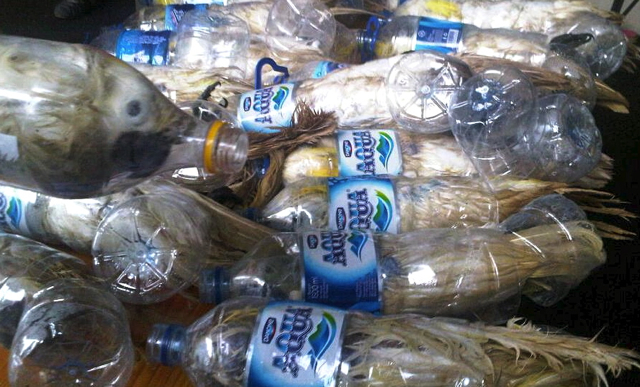- The Environment and Forestry Ministry hopes improving judges’ understanding of wildlife issues will encourage them to hand out stronger sentences.
- Lawmakers and administration officials also intend to revise the 1990 Conservation Law, seen as a weak point in the fight against wildlife crime.
- Activists hope the reforms will help the government bust entire trafficking syndicates rather than just a few relatively unimportant, individual actors.
To achieve greater rigor of verdicts for those convicted of wildlife crimes, who often receive light sentences, Indonesia’s Environment and Forestry Ministry is reaching out to judges to upgrade their knowledge, according to a senior official.
“We’re aware of the situation,” Ridho Rasio Sani, the ministry’s new director-general for law enforcement, told mongabay.com. “That’s why we’re initiating a meeting with judges to train them on environmental issues.”
In July, the Bengkalis District Court in Riau province was criticized by activists and officials when seven elephant poachers each received one-year prison sentences and fines of 3 million rupiah ($212), a verdict deemed weak even by the minister herself.
Around the same time, the nearby Medan District Court in Sumatra’s largest port city sentenced prominent wildlife trafficker Vast Haris Nasution to two years imprisonment and and fined him 10 million rupiah for trying to sell a baby orangutan on Facebook.
While the latter verdict was hailed by conservationists as a possible sign of greater stringency, it was still an outlier. Sani hopes improving judges’ understanding of wildlife issues will encourage them to hand out stronger sentences.
“It could be that judges have little understanding of the impacts [of wildlife] toward [human] life,” Sani said. “Most of them might be thinking, ‘Oh, it’s only animal [killings], what harm could it bring [to humans]?’ But animals and plants are also important to be protected as much as humans.”

While building the capacity of judges is a good idea, trainings should also be administered for prosecutors and investigators, according to Henri Subagiyo, executive director of the Indonesian Center for Environmental Law (ICEL),
“In most illegal wildlife cases, the prosecutors seek light punishments,” Henri explained, added that very few charges amount to more than a year behind bars, while the 1990 Conservation Law stipulates a maximum sentence of five years.
Henri called for the law to be updated and strengthened, echoing a commitment voiced by both the House of Representatives and President Joko “Jokowi” Widodo’s administration amid a recent public outcry over a series of high-profile wildlife crimes.
In May, police in the port city of Surabaya arrested a man with 23 critically endangered yellow-crested cockatoos (Cacatua sulphurea) stuffed in plastic water bottles. The incident prompted more than 100 bird owners to free their pet cockatoos, handing them over to voluntary exchange centers the government set up in the wake of the scandal. A series of wildlife crimes posted to Facebook have also galvanized the Indonesian public.

Lawmakers have set 2016 as a deadline for passing the revised law, which would address new forms of crime, such as transactions carried out over the Internet, and allow for the arrest of perpetrators whether or not actual wildlife could be seized as evidence, among other matters.
Henri suggested the revised law also hold companies responsible for protecting wildlife in their concessions.
“We have often found that orangutans considered to be pests are found dead or severely injured in companies’ concessions,” he said. “This should be companies’ responsibility because it happens in their areas. They should be liable for negligence.”
Firms implicated in such situations, he added, should be threatened with criminal charges, civil charges over habitat loss and ecosystem destruction, and administrative sanctions, including the potential revocation of their permits.
“For instance, if elephants are hunted down [in a concession], the company would be liable for legal charges and they would need to recover the loss of habitat,” Henri said. Indonesia has the world’s highest deforestation rate, and habitat loss and fragmentation has driven megafauna into increased conflict with humans.
“In addition, if animals are confiscated or saved from their concessions, companies should have to pay for their rehabilitation until they are released into the wild. The process is not cheap and it is only right for companies to fund it.”
Henri said the present law is not sufficient against the illegal wildlife trade, the purview of criminal syndicates.
“We haven’t gotten the masterminds because the law is not strong enough,” he said. “It only targets the field actors.”













